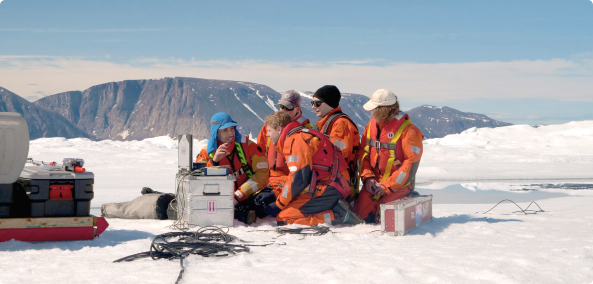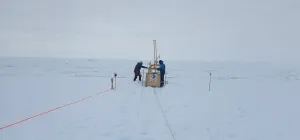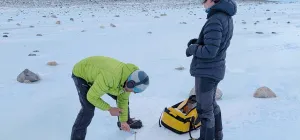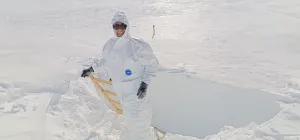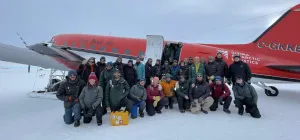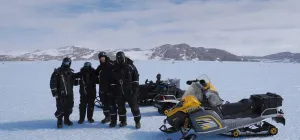VUB and ULB Mission to Antarctica: Unveiling the Secrets of Climate History and the Solar System
The Université libre de Bruxelles (ULB) and Vrije Universiteit Brussel (VUB), in collaboration with the International Polar Foundation (IPF), are launching two ambitious scientific expeditions to Antarctica. Their mission: to gain new insights into Earth’s climate history and the evolution of our solar system by studying ancient ice layers and meteorites.
The Université libre de Bruxelles (ULB) and Vrije Universiteit Brussel (VUB), in collaboration with the International Polar Foundation (IPF), are launching two ambitious scientific expeditions to Antarctica. Their mission: to gain new insights into Earth’s climate history and the evolution of our solar system by studying ancient ice layers and meteorites.
The expeditions will operate from the Princess Elisabeth Antarctica station (PEA), the first zero-emission polar research station, which has been pivotal in Belgian polar research since its inauguration in 2009. Since early November, the IPF team has been preparing the station for the missions. This includes clearing snow, starting systems like water purification, and testing essential equipment such as snowmobiles and tractors. Experienced IPF guides have also been charting safe routes for the scientific expeditions.
This year presents additional logistical challenges due to the simultaneous launch of two separate missions. One team will establish a field camp in the remote Belgica Mountains, located 300 km east of the Sør Rondane Mountains. Another team will work closer to the station, 50 km south, in a challenging blue-ice area. Both missions require intensive logistical support, including material transport and ensuring safety on-site.
The two Major Projects in Focus This Season:
1. ULTIMO – Researching meteorites and the geology of the Belgica Mountains
2. FROID – Searching for Earth’s oldest ice
ULTIMO Project
Led by Steven Goderis (VUB) and Vinciane Debaille (ULB), the ULTIMO project aims to discover rare meteorites and map the geological features of the Belgica Mountains. Meteorites hold crucial information about the origins of the solar system and can provide insights into the transport of water and organic molecules to Earth.
“This expedition to the Belgica Mountains is unique—no recent Belgian expedition has explored this remote region. The logistics are demanding, involving snowmobile transport and extensive field camps. We anticipate weather challenges affecting up to 50% of our working time, which underscores the importance of a well-equipped base,” said Steven Goderis.
The mission builds on decades of collaboration with Japanese scientists, who have been collecting meteorites in East Antarctica since the 1960s. Belgian teams have already cataloged over 1,300 meteorites, housed in Brussels and made available for global research.
FROID Project
Under the leadership of François Fripiat (ULB) and Harry Zekollari (VUB), the FROID team will search for ice layers potentially over one million years old.
“By analyzing the oldest ice layers, we aim to reconstruct CO₂ concentrations and atmospheric conditions from the distant past. This could deepen our understanding of transitions between ice ages and warm periods, providing valuable insights for climate research,” explained glaciologist Harry Zekollari.
By combining meteorite studies and ice core drilling, these missions aim to achieve breakthroughs in both climatology and space science.
Both projects are financed by the Belgian Federal Science Policy (BELSPO).
Download